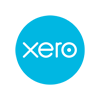Understanding National Insurance contributions
National Insurance contributions allow you to enjoy certain benefits as well as the State Pension. You have to pay National Insurance if you are 16 years and older; you are an employee, who earns more than £155 per week; and you are self-employed, who makes a minimum profit of £5,965 a year.
As an entrepreneur, you can be self-employed and employed the same tax year. This could have implications for your National Insurance contributions. There is an upper limit in place that an individual has to pay each tax year. If you are employed and self-employed simultaneously, you will make Class 1 contributions. On the other hand, if you are self-employed, you will pay Classes 2 and 4 contributions.
National Insurance classes
There are different types of classes and the amount you contribute to National Insurance depends on your earnings and employment status. Even if you have gaps in your National Insurance records, it will affect the amount of your contributions.
Class 1: If you under the State Pension age and an employee earning over £155 a week. Your contributions will be deducted directly by your employer.
Class 1A and 1B: Here, employers are responsible for paying directly on their employees’ benefits or expenses.
Class 2: This is meant for self-employed individuals. If you earn less than £5,965, you are not obligated to pay National Insurance, but can agree to make voluntary contributions.
Class 3: This is voluntary contributions to avoid or fill gaps in your National Insurance record.
Class 3A: This allows you to make a single lump sum payment to top up your pension. It is a voluntary contribution.
Class 4: If you earn more than £8,060 a year in profits as a self-employed individual, you belong to this class.
How much will you pay as National Insurance?
If you are self-employed and employed, you will be in Class 1 National Insurance category. You will pay 12% if you earn from £155 to £815 a week. In case you earn more than £815 a week, you will pay 2%.
This amount will be less if you defer National Insurance due to more than one job; you are a married woman or widow; or you part of a contracted out workplace pension.
As self-employed, you will pay Classes 2 and 4 based on your profits. Usually, the payment for both classes is through Self Assessment.




